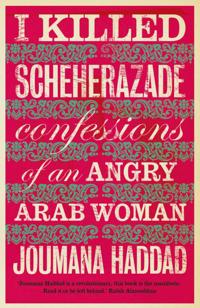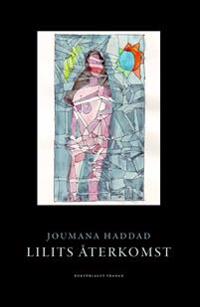Information Society and the Workplace (Häftad)
avJoumana Haddad
ISBN: 9780415439862 - UTGIVEN: 200702Much has been written on the grand prospects for "Information Society"; much less on what this might mean in everyday terms. So what do we find when we look at what is happening in a society, Finland, that is one of closest to an information society? Bringing together studies of everyday local pract[...]
I Killed Scheherazade (Häftad)
avJoumana Haddad
ISBN: 9780863564277 - UTGIVEN: 201009In this provocative book Joumana Haddad uses the format of the political pamphlet to describe the liberating impact of literature on her life. She tells of reading the Marquis de Sade at twelve, of her metamorphosis into an award-winning poet, and reflects upon how this has shaped her as an Arab wom[...]
I Killed Scheherazade: Confessions of an Angry Arab Woman (Häftad)
avJoumana Haddad
ISBN: 9781569768402 - UTGIVEN: 201109Joumana Haddad is angry. She finds the West's portrayal of Arab women appalling and the image projected by many Middle Eastern women infuriating. "Being an Arab today means you need to be a hypocrite," Haddad boldly states. "We constantly and obsessively think about sex but dare not talk about it." [...]
Superman is an Arab (Häftad)
avJoumana Haddad
ISBN: 9781908906090 - UTGIVEN: 201209This is not a manifesto against men in general. Nor is it a manifesto against Arab men in particular. It is, however, a howl in the face of a particular species of men: the macho species, Supermen, as they like to envision themselves. But Superman is a lie. In this explosive sequel to I Killed Scheh[...]
Jeg drepte Sjeherasad; en sint arabisk kvinnes bekjennelser (Inbunden)
avJoumana Haddad
ISBN: 9788243006348 - UTGIVEN: 2011«De fleste av oss i Vesten har vanskelig for å forestille oss at det finnes frigjorte arabiske kvinner som deg.» Denne boken er et svar på denne kommentaren som den arabiske poeten og redaktøren Joumana Haddad en dag fikk av en europeisk journalist. Haddad tar et heftig oppgjør med det hun men[...]
Jeg dræbte Sheherezade. En vred arabisk kvindes bekendelser (Häftad)
avJoumana Haddad
ISBN: 9788779734753 - UTGIVEN: 2011-06-10Lilits återkomst (Inbunden)
avJoumana Haddad
ISBN: 9789186307103 - UTGIVEN: 201007Lilit, den självständiga kvinnan, finns omnämnd i de flesta kulturer. I Lilits återkomst gör Joumana Haddad denna urkvinna till sitt poetiska alibi och låter henne förkunna: »Kvinnan har förvägrats att vara kvinna.« Lilit framträder som en änglalik demon eller en demonisk ängel, ibland[...]









